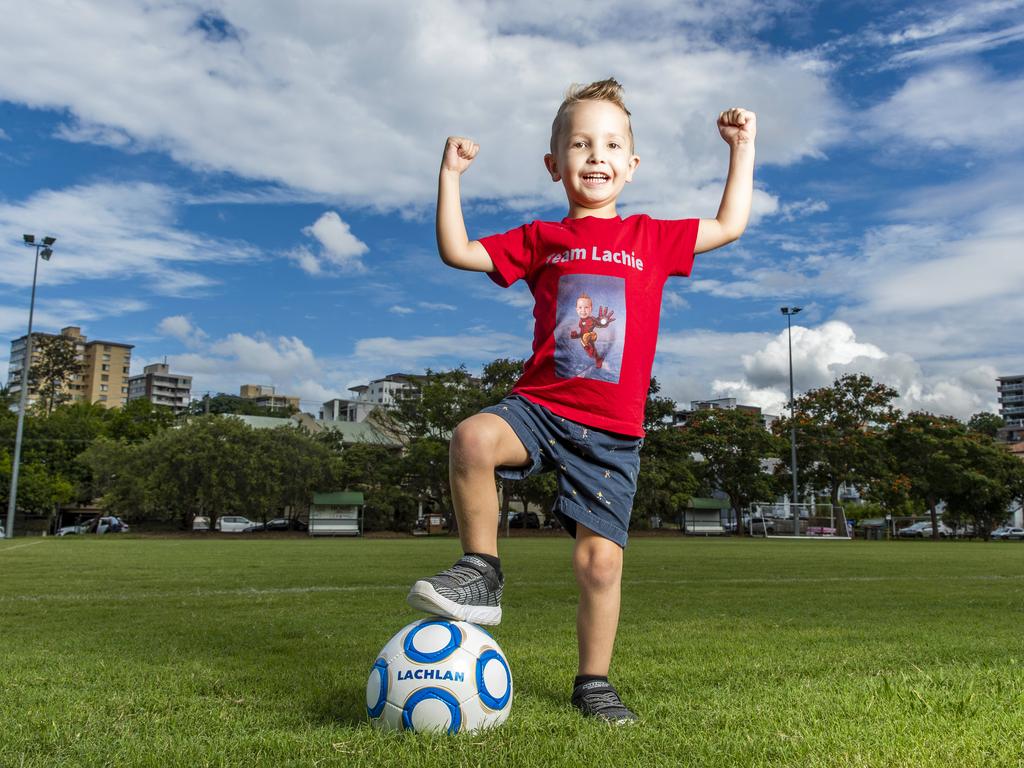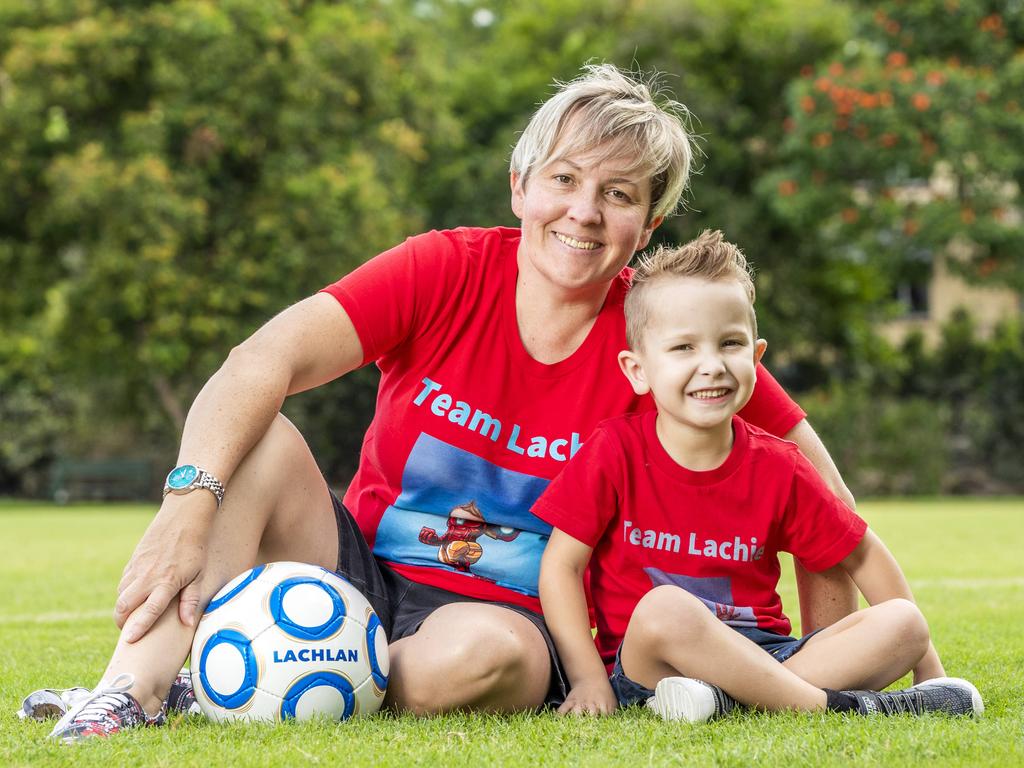Better life for little Lachie: Subsidised drug to forever change future of cystic fibrosis sufferers
A newly-subsidised drug – that previously would have cost $250,000 a year – offers the chance for Queenslanders like four-year-old Lachie Davis-Richards to lead a happier life with less hospital trips.
QLD News
Don't miss out on the headlines from QLD News. Followed categories will be added to My News.
The future is looking far brighter for cystic fibrosis sufferers who will soon have access to a life changing drug at a government-subsidised price.
Trikafta is expected to give four-year-old Lachie Davies-Richards, from Brisbane’s south, a happier childhood with less hospital trips than sufferers in the generations before him.
Queenslanders will be able to access the life-changing treatment at a fraction of the cost from April 1 when it will be available on the Pharmaceutical Benefits Scheme for Australians aged 12 and older.
Relief washed over Salisbury mum Nola Richards when she read the announcement at the weekend and realised what it could mean for her little Lachie, who she hopes will be eligible for access in the coming months.
“What it means for us is we have more certainty that he will live a long and healthy life,” Ms Richards said.
“We were told that he could live up to the age of 35 which is quite traumatic to hear about your little baby but now these things are changing with this medication.”

Resilient and happy Lachie was diagnosed with the progressive, genetic disease at three-weeks old and has since been admitted to hospital five times.
Ms Richards said Lachie, wise beyond his years, contracted infections which he was unable to fight on his own and it had difficulty maintaining his weight.
Jessica Bean, 34, knows the struggles all too well and believes little Lachie’s life and experience battling cystic fibrosis will now be far different to hers.
“I think this will completely redefine what it means to have cystic fibrosis,” Ms Bean, from Brisbane's north, said.
“Children just won’t know the difficulties that people of my generation have faced- there won’t be the same time in hospital, they won’t feel the painful procedures and hopefully there won’t be the same level of medications to do every single day.
“This is exactly what our community has been fighting for.”

Cystic fibrosis is caused by genetic defects that limit the flow of chloride and water through cell membranes, resulting in a thick, sticky build-up of mucus in the lungs, pancreas, and other organs.
Trikafta works by improving the flow of chloride and water in patients who have a certain genetic defect and helps improve lung function and breathing.
Ms Bean has regained lung function since she gained compassionate access to Trikafta two years ago.
The drug would have otherwise cost her about $250,000 per year, and Ms Bean considered selling her home to regain some quality of life.
“As someone who was considering a lung transplant before being granted compassionate access, this drug has completely changed my life and future,” she said.
Ms Bean said she felt like shouting from the rooftops after reading Trifakta would be subsidised, a “huge leap” forward which advocates have been lobbying around for years.
Patients will now pay a maximum of $42.50 per script, or as little as $6.80 with a concession card.
It’s yet to be announced when children under 12 will be eligible for access.





